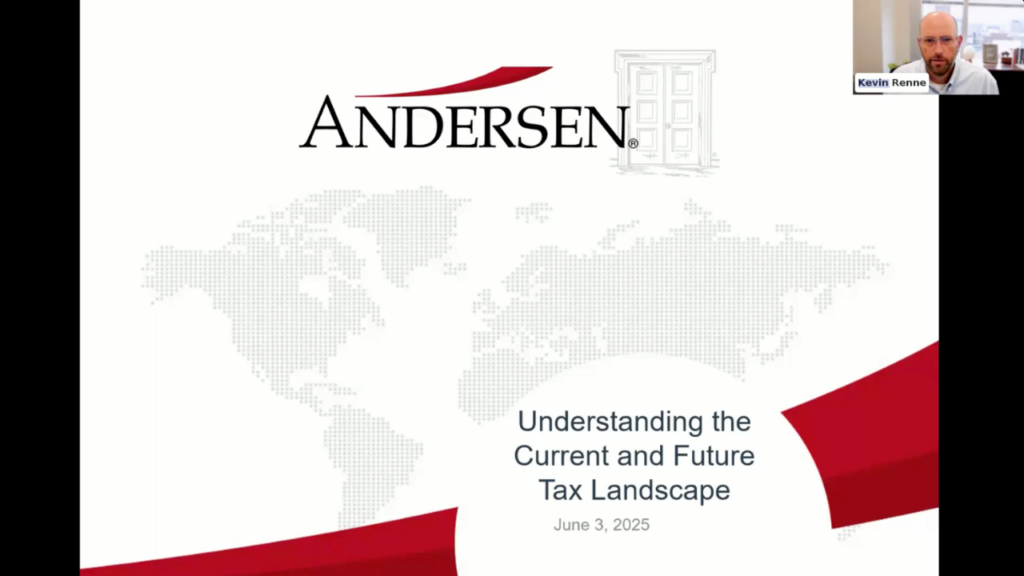As we approach the end of another year, we prepare to celebrate the holidays with our loved ones. Gathering around the table, we share traditions and values with the younger generation in hopes of keeping those traditions alive and well. Worthwhile is the topic of good financial security—making sound decisions for a bright and bountiful future.
Not only should good financial decision-making be on your conversation list, but you should also prioritize looking at planning opportunities for yourself for year-end.
Here is a list of considerations as we wrap up the year:
Required Minimum Distributions (RMDs) and Qualified Charitable Distributions (QCDs)
Still have Required Minimum Distributions (RMDs) to satisfy this year? If you have attained the age to take RMDs or have inherited an IRA, you may be required to take an RMD annually by December 31. If you don’t take your full RMDs by the deadline, you may be subject to an IRS 25% excise tax for every dollar under-distributed.
If you are charitably inclined and want to support organizations like Westminster College, consider utilizing Qualified Charitable Distributions (QCDs). By doing so, you can not only help future education but can do so tax-free.
If you’re 70½ or older, you can donate up to $105,000 to a charity directly from your IRA using a QCD for tax year 2024. You won’t be taxed on the distribution or receive a tax deduction for the donation, but you can use your gift to satisfy all or part of your RMD without adding to your taxable income.
Education Contributions:
Consider 529 accounts for children or grandchildren. Did you know that the grandparent-owned 529 accounts are not accounted for when considering college aid funding?
Gifting to 529 plans can help reduce the size of your taxable estate. In 2024, you can gift up to $18,000 (or, if you’re married and file taxes jointly, up to $36,000) per recipient without those contributions counting toward your lifetime gift tax exemption.
You can ‘superfund’ a 529 plan with up to 5 years’ worth of contributions simultaneously. This means an individual can contribute up to $90,000 in a single year to a particular 529 plan in 2024. Remember that you could only give more money to that recipient within that 5-year period if you counted against your lifetime gift tax exemption.
Maximize Retirement Plan Contributions:
Look at fully funding retirement plans. The 2024 contribution limit for Traditional IRA and Roth IRA accounts is $7,000 plus an additional $1,000 catch-up contribution for individuals over 50. For 401(k), 403(b), profit-sharing plans, etc., the maximum elective deferral limit is $23,000 plus $7,500 for catch-up contributions. You can potentially help reduce your taxable income by funding your tax-advantaged accounts.
Review Capital Gain/Loss:
You can request your capital gains or losses for the year from your advisor. If you have recognized gains, consider tax-loss harvesting opportunities to offset them. You can also speak with your advisor or accountant regarding carryover capital loss from prior tax years. If you have capital loss carryover, this may be a time to consider recognizing gains in your investment account to rebalance to a healthy targeted asset allocation.
Tax planning and Withholding Adjustments:
Work with your accountant on projecting your income tax liability for the year based on year-to-date cash flow and investments. You may need to withhold additional funds for taxes from any future distributions this year or potentially prepare for a tax bill when filing your taxes. Regardless, it is good to know where you stand.
Consider a Roth Conversion:
Depending on your circumstances, a Roth Conversion may make sense. If you have substantial funds in a pre-tax retirement account, such as a Traditional 401(k) or 403(b), and have entered a lower tax rate, there may be room until your next tax bracket ceiling to recognize income through Roth Conversions. Funds will be moved from pre-tax accounts into a Roth account for further growth. Funds dispersed from a Roth IRA account are tax-free to the recipient (so long as certain criteria are met). This is unlike distributions from an IRA or Traditional 401(k), where you are taxed at ordinary income rates. Roth Conversions are a reasonable consideration prior to the Required Minimum Distribution (RMD) age. Because Roth IRAs do not have RMDs during the individual’s lifetime, moving funds from an IRA to a Roth IRA could mean recognizing income now to reduce your total RMD in later years, ultimately reducing the potential income tax owed.
Act in the Season of Giving:
As mentioned, this year’s annual gifting exclusion amount is $18,000 (or married and filing jointly, up to $36,000) per recipient. Considering gifting to loved ones via inter vivos gifting. A potential tax advantage for consideration is if you gift appreciated stock positions to individuals in a lower tax bracket, you not only defer tax recognition from you to them but also potentially reduce the amount of taxes owed on the gains. This may be a way to strategically pass on generational wealth or help loved ones in need.
If you are set on donating to 501(c)(3) charities, you can utilize appreciated assets. By transferring these appreciated assets to a donor-advised fund (DAF), this account receives the assets and directs gifts according to the donor’s wishes. When assets are placed in the fund, the donor gets credit for a charitable gift that can be used to offset taxable income. In addition, they do not have to pay capital gains tax on the appreciated assets.
At JFS Wealth Advisors, we work with clients to help them stay abreast of changes and developments in tax and investment rules. We aim to help our clients make smart, tax-efficient decisions about their investments and other aspects of their financial strategy. We operate with a fiduciary obligation, meaning we seek to provide guidance and recommendations with our clients’ best interest in mind.
Visit our website to learn more about how we help you manage your wealth with your best interests in mind. Visit our Knowledge Center to read our latest articles on important financial topics.




















